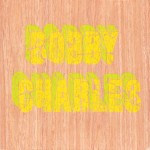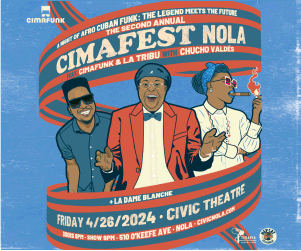Bobby Charles’ 1972 self-titled album is his masterpiece, an album recorded in Woodstock, New York with members of The Band, Amos Garrett, Dr. John and David Sanborn backing him. The tracks have the loose grooves of The Band as they pull together country, rock and R&B, all of which suits the subtle wit and sly wisdom of Charles’ songs. The music he made before and after this album were more clearly in genres, but these tracks are as idiosyncratic as Charles’ voice and sensibility. “Street People” is lyrically very much a part of its moment, but its funky groove is its own reward, and “Small Town Talk” and “I Must Be in a Good Place Now” show a charming, light touch from top to bottom.
The album was largely ignored when it was released, and it has been in and out of print since. Rhino Handmade has reissued it with other tracks from Charles’ Woodstock years and an “interview”—really, a conversation—with Barry Hansen, then a rep for Warner Brothers before he’d become radio personality Dr. Demento. The bonus tracks aren’t necessary, and Charles would eventually release many of them in different forms, but these versions are of interest for what they collectively say about Woodstock in the early 1970s. Even before I read the liner notes and Amos Garrett talking about how much they drank, I could feel the weed in the vibe of disc two. Tempos are pokey and the great “Homemade Songs” takes more than seven minutes to find its way home. Those versions aren’t painful or purposeless by any means, but they’re more interesting as evidence of where Charles and the musicians were at than as stand-alone pieces of music. Collectively, they suggest that Charles and his friends’ version of socializing was to hang out and get high while making music.
Hearing the sound of weed in these tracks isn’t an inference; it’s in the album. In the great “Tennessee Blues,” he sings about wanting to leave the hills of Woodstock and wanting to lose “these Tennessee Blues.” In fact, he was on the lam from a pot bust in Nashville, and he felt trapped in Woodstock by the deal he signed with Dylan manager Albert Grossman, who said he could get the charge dealt with if Charles signed a management contract with him.
Throughout his career, Charles’ artistic and social life went hand in hand. His business life was equally social, as his conversation with Hansen illustrates. The talk loses purpose almost instantly and meanders, only occasionally returning to Hansen’s effort to get info he could use to sell Charles’ album to radio stations and retailers. It has its moments, though. In it, Charles declares Allen Toussaint the first genius he’d ever met.
Bobby Charles had mixed feelings about being a performer dating back to his days on Chess Records, and his recording history reflects that. There are great songs from the earliest days until last year’s Timeless. But he only cut one great album—this one—and though the second and third discs are fan-only, Bobby Charles is as meaningful an Americana album as anything Gram Parsons released.





